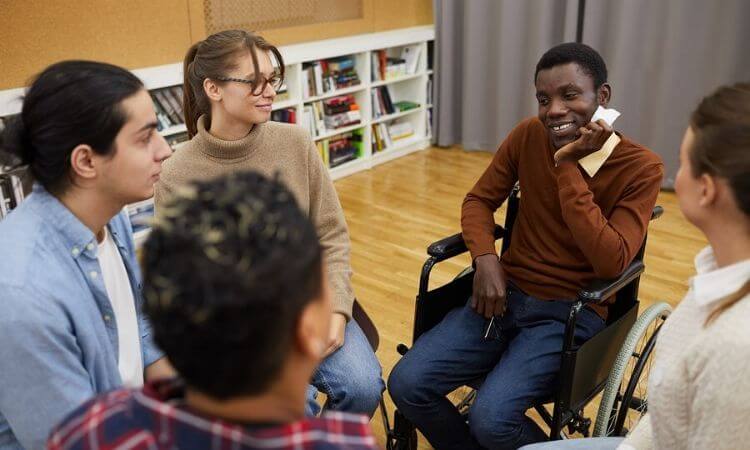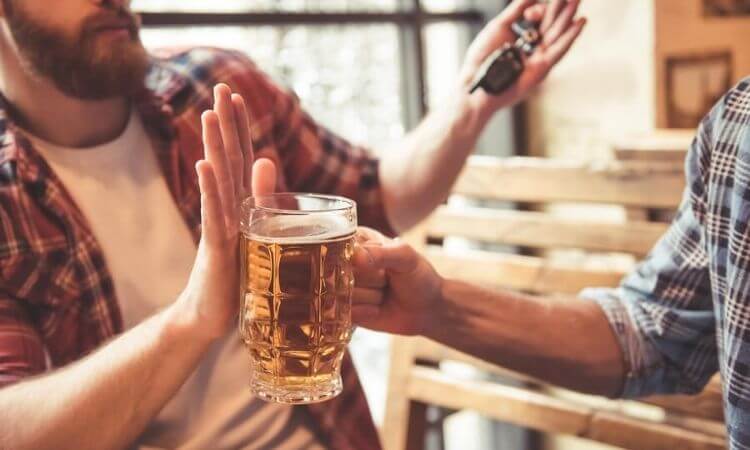
For many people in recovery, the holidays can be challenging. But you don’t have to let unfulfilled expectations and stressful family dysfunction ruin your sobriety—you just need to engage in a bit of planning. Start preparing your strategy now, and consider the following tips to help you along!
13 Tips for Holiday Sobriety
Tip #1
Take time to remind yourself how good sobriety feels, and how accomplished you will feel in January. Keep this thought front and center in your mind—you might even want to write a note to yourself as a reminder to think about it every day.
Tip #2:
Keep your expectations grounded in realism, so you don’t set yourself up to experience an emotional letdown. Being sober doesn’t mean life is going to be perfect instantly. The other people in your life probably haven’t changed much, and friction that has been encountered at family functions in the past is likely to crop up again. It would be best if you accepted this fact, and despite it, not attempt to control everything. Instead, you have to be ready to stand up for your sobriety, and nothing is worth undermining your recovery.
Tip #3
Plan sober activities other than sitting around and socializing. In many families, this behavior includes drinking and, in some cases, doing drugs. Consider going to movies, museums, concerts, skating, walks, sledding, or sports events that can all fill time and reduce stress. If the weather keeps you inside, there are still activities that will keep everyone busy and focused, such as decorating cookies, board games, movies, etc.
Tip #4
Limit the time you spend with people or situations that cause you to be stressed out. People might include those in which you used to abuse substances or people whom you just tend to engage in conflict. They also include any situation, including family gatherings, that might have triggers and lead to thinking about using drugs or alcohol.
Time limitations may be pre-imposed or spontaneous. That is, you can plan to leave a situation or event after an hour, or politely excuse yourself at whatever time you need to if you feel that remaining there is not in your best interest.
Tip #5
It doesn’t matter if you are traveling or staying near home, go to support group meetings whenever you can, and determine which ones to attend and where to go in advance. You can use these meetings to your benefit in terms of scheduling, as well—people often find it helpful to go to meetings both before and after holiday events, or at the very least, have a sponsor handy to talk to and solicit advice if you need it.

Tip #6
Take time to visit friends and family that you enjoy, but avoid those with which you used to engage in substance abuse if it is at all possible. If you must see these individuals, limit your time with them and turn your focus away from their drug or alcohol use and instead get involved in healthier activities.
Tip #7
If you feel you need to steer clear of certain social events, you can plan your own celebration. If you are not up to visiting relatives or friends, get together with group support members or volunteer at a local shelter. Have dinner at home or in a restaurant, rather than put yourself in a position of temptation around loves ones who still drink or do drugs.
Tip #8
Take it easy on yourself. Get plenty of rest, watch what you eat, and engage in the usual daily rituals that help you positive or focused on the present, such as exercise or meditation. Do not neglect yourself or the importance of your recovery for one second because the day is going to be different in some way.
Tip #9
Devise a strategy for coping with cravings. Write a list of things that work for you, such as calling a friend or sponsor, getting in a quick workout at the gym, or praying. If you can’t think of anything, try to remain sober for just one minute, then two, then three. Start another activity, such as cooking or house work, and after you’ve gotten through five minutes, and keep increasing that time. Recovery happens in the present, not the past or future. Always keep this in mind.
Tip #10
Remember that being in recovery doesn’t mean everything is going to go flawlessly. Understand that sobriety is not going to fix everything, despite the fact that many people with addictions expect their world to become perfect. Don’t forget that if you’ve been abusing alcohol or drugs for years, your brain may need considerable time to restabilize and rewire itself. You have to give yourself time to rebuild the life you deserve, and not give up because something less than ideal occurs.
Tip #11

Remember that it’s okay to tell people that you are in recovery. Nearly everyone knows someone that has had a problem with drug or alcohol use and is open about it. If you are not comfortable with this, you don’t have to force yourself. Keep in mind that openly discussing such problems with others has gone a long way to reduce stigma and help people understand that addiction isn’t just a moral failure—it’s a chronic disease that no one consciously chooses to have.
Another good reason to be honest with others is that it may discourage others from offering you drugs or alcohol or engaging in substance abuse in front of you. It may also be the catalyst for another loved one to consider seeking help if they, too, have a problem.
Tip #12
Come up with a strategy for staying sober at parties and in social situations. Know what you plan to say to others and come up with a good exit plan if you need it. Serve yourself and drink plenty of water and indulge in a soda or two if you’d like. Alcoholics are especially used to having a drink in their hand while socializing, and if you choose a healthy, non-alcoholic one, you may be less tempted to imbibe in something you should not.
Tip #13
Prioritize your sobriety above all else. If that means you have to decline an invitation this year, that’s okay. There’s always next year, and people new to recovery aren’t always fully prepared for the stresses and triggers they will encounter in holiday situations. Every day during the holidays is still just a day. As long as you have some type of support, it doesn’t really matter what you do, as long as you put yourself first. Enact healthy thoughts and behaviors that will help prevent relapse and keep you from being fearful or miserable during this time of year.
Getting Treatment for Addiction
If you suspect that you or someone you love is struggling with sobriety or needs help for a substance abuse problem, contact us today! Midwood Addiction Treatment offers individualized, comprehensive programs that include therapeutic services and activities vital for the process of recovery, such as cognitive-behavioral therapy.
Overcoming addiction can be a lifelong endeavor, but you don’t have to do it alone. Contact us today and find out how we can help you get started and begin your recovery journey, one day at a time!